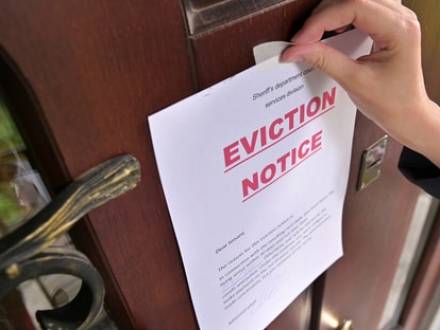Advice for Landlords Regarding Tenant Evictions in 2025
 The most common reason that landlords in DuPage and Cook Counties go to eviction court is because of non-paying tenants. When a tenant falls behind on his or her rent and has no way of catching up, the balance of back rent can become significant. Unfortunately, the longer a landlord waits, the harder it may become to legally evict tenants. The average landlord waits until a tenant is at least three months behind and owes approximately $5,000 in back rent.
The most common reason that landlords in DuPage and Cook Counties go to eviction court is because of non-paying tenants. When a tenant falls behind on his or her rent and has no way of catching up, the balance of back rent can become significant. Unfortunately, the longer a landlord waits, the harder it may become to legally evict tenants. The average landlord waits until a tenant is at least three months behind and owes approximately $5,000 in back rent.
Since the timeline for a court hearing can be six months or more, a landlord can conceivably end up with $10,000 to $15,000 in lost income. Landlords should have an absolute "trigger point" at which time appropriate notice is filed on the tenants. Although failure to pay rent is the most common reason for evictions, there are other issues that can trigger a quicker eviction.
If you are a landlord in the Cook and DuPage County areas, you are probably aware of the tightrope landlords must constantly walk to create a balance between their own financial stability and leaving people who fall on hard times without a home. An experienced Naperville, IL attorney who has significant experience in landlord issues can help ensure you stay on the right side of the law while looking out for yourself and your family.
What Are Other Common Reasons for Evictions?
Violations of a lease are the next most common reason for evictions in Chicago and the surrounding areas. Lease violations may include:
- Criminal behaviors like gang activity or drug dealing
- Having pets against stated pet restrictions
- Ongoing disturbances that impact other tenants
- Excessive noise
- Unauthorized occupants
There must be a repeated pattern of damaging behavior, and if this is proven, a lease violation eviction for cause requires a 10-day notice for the tenant to remedy the situation. Lease non-renewals may occur when landlords want to sell the unit, perform extensive remodeling, or have no positive landlord/tenant relationship.
The landlord must give a 60-day notice if the tenant has lived in the unit for less than three years or a 120-day notice if the tenant has lived in the unit for more than three years. A non-renewal cannot be given to a tenant if there is even a hint of retaliation in the non-renewal. A tenant has the right to join a tenant union, file a complaint, or engage in other legal actions to improve his or her living conditions.
What Can Landlords Do About Squatters?
Unfortunately, with the steady increase in the homeless population, squatters have become an increasingly serious problem. Squatters – like the rest of us – use the internet to share tips and trade secrets. In some cases, simply telling a squatter that he or she must move out or the sheriff will show up is enough to fix the problem. A squatter who has been scammed by someone else and believed he or she had a valid lease is a whole other issue.
A landlord must submit a Demand for Immediate Possession to have squatters legally removed, but as the issue moves through the legal process, squatters can cause significant damage to a property. Landlords should physically check on a property on a regular basis or at least have cameras at the property to know when someone has illegally moved onto the property.
Tenants are Usually Aware of Their Rights
Tenants know that eviction can take a minimum of six months. Recognizing that an overburdened legal system can buy them time, some will file motions to vacate a default order when they fail to appear at their scheduled court date, adding weeks more for a new hearing. One possible solution is to work out a structured payment plan through the court with tenants to help them catch up on the back payments owed.
Contact a DuPage County, IL Landlord Eviction Attorney
Being a landlord comes with a whole host of potential problems. Having a Naperville, Illinois landlord eviction lawyer from Appelman Law LLCwho can help you determine the best legal course of action can be an invaluable asset. Call 630-717-7801 to schedule a free consultation.





